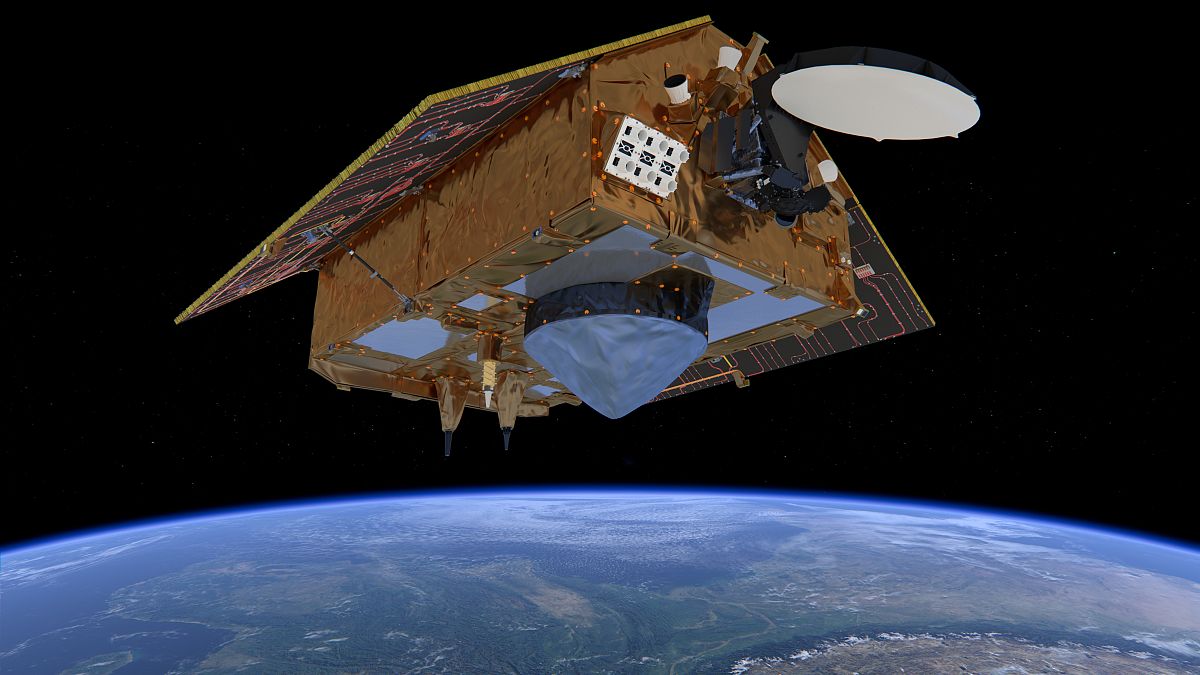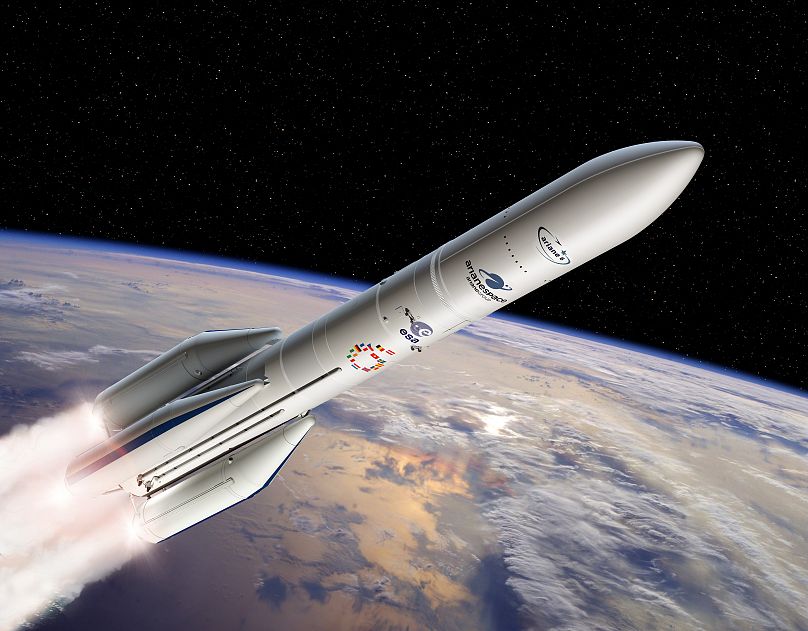Jan Wörner, Director-General of the European Space Agency, talks to Euronews about the challenges the space sector faces in 2021.
The European Space Conference in Brussels takes place this week, so Euronews spoke to European Space Agency Director General Jan Wörner about the challenges the sector faces in 2021.
Brexit troubles Europe's space sector
Brexit is a headache for the European space sector, as the UK is a permanent and committed member of ESA, but is now outside the EU. Leaving the EU has made everything more complicated: under the terms of the agreement signed in December 2020 the UK can continue to be part of the Copernicus Earth observation programme at least until 2028, as both the EU and ESA contribute funding to it. However, it loses access to high-quality positioning from the EU's Galileo satellites, and is now out of EGNOS. The British stop being a full member of the European space debris tracking system, but still have access to it as a non-EU partner.
There are outstanding questions over the role of British companies in building spacecraft for EU-related projects. ESA DG Jan Wörner told Euronews he believes 'it is possible to have a solution', given that non-EU countries like Switzerland and Norway are able to take part in the construction of satellites under Brussels contracts. However, the sheer size of the UK space sector is an issue. "Some fear in Brussels that if a big member state is doing something different, then this could be a magnet for other countries to do the same," admits Wörner.
EU project to beam internet to all
A hot topic around the virtual and real water coolers at the Brussels Space Conference will be the Commission's new plans to create a network of low-Earth orbiting internet satellites, which should offer broadband, 5G and more to rural communities across the bloc.
The initiative is being spearheaded by Commissioner for Internal Market, Thierry Breton, with a broad consortium of space industry players comprising Airbus, SES, Arianespace, Eutelsat, OHB, Orange, Telespazio and Thales Alenia Space.
The vision is similar to the Starlink and OneWeb systems, both of which have already launched satellites aimed at offering a new kind of holy grail in communications, a low-flying communications network from orbit which allows everyone, at least in theory, to enjoy high-speed connectivity.
The European version would be a public-private partnership, and initial work will begin this year.
Defining ESA-EU relations
The EU's enthusiasm for space is clear: just before Christmas the European Commission and Parliament approved a 14.8 billion euro budget for EU space activity. The funding for the period 2021 to 2027 includes 9 billion for Galileo and 5.4 billion for Copernicus.
It's part of a continued and rising commitment to developing Europe's space sector, but it does beg the question of just how close ESA and the EC would like to become? For Wörner, moving further in the EU's direction is a 'political decision' but not one that necessarily fits with ESA's principals on return on investment, which see agency member states receiving reciprocal industrial contracts which are very close in size to their level of investment in a given programme. "The link between what ESA is doing and what states want to happen is very close, and a really big advantage," he says.
The current director of Earth Observation at ESA, Josef Aschbacher, has said that defining the relationship between the two organisations is one of his main objectives when he replaces Wörner in July 2021.
Competition from US and China
A key focus of the Brussels Space Conference is the desire for Europe to develop a vibrant and independent private space sector. So far, major initiatives like Galileo and Copernicus have spawned a large number of small and specialist space startups selling value-added services based on the free data from these two projects. However, the old continent has so far struggled to create the kind of attention-grabbing commercial space firms like SpaceX and Planet Labs that NASA has helped foster in the US.
Then, there's the speedy growth and unbridled ambition of the Chinese to take into account. When Jan Wörner first came to his job in 2015 he made a media splash with his dreams of creating a 'village on the Moon'. In late 2020, however, he could only watch in awe as the Chinese sent a robotic mission to fetch samples from the Moon. It's something only the Soviet Union and the United States have achieved before.
"My first thought was congratulations, of course," he says, "but I quickly thought 'ah, they are fast, and we should be faster'". He told Euronews he hopes the joint ESA-NASA Mars Sample Return mission will be even more inspiring and impressive and give Europe's exploration programme a much-needed boost in publicity.
There are areas where ESA is a leader, particularly in Earth observation thanks to the Sentinel fleet. Catching space debris and working out how to deflect an asteroid on a collision course with Earth are another two of the growth areas for public and private initiatives in Europe. ESA is also pushing ahead with its Space Rider vehicle, an un-crewed flying machine which resembles a mini-Shuttle, and could offer commercial and institutional clients a relatively low-cost means of reaching orbit, and returning home afterwards.
However, the new Ariane 6 rocket continues to face delays. Much vaunted as a flexible new vehicle to compete in this highly-competitive market, the replacement for the heavy-lift Ariane 5 is now only due to launch in the second quarter of 2022. Arianespace has called on European governments to step up their commitment to launchers to better compete with SpaceX, which has grown rapidly on the basis of lucrative American government launch contracts.

